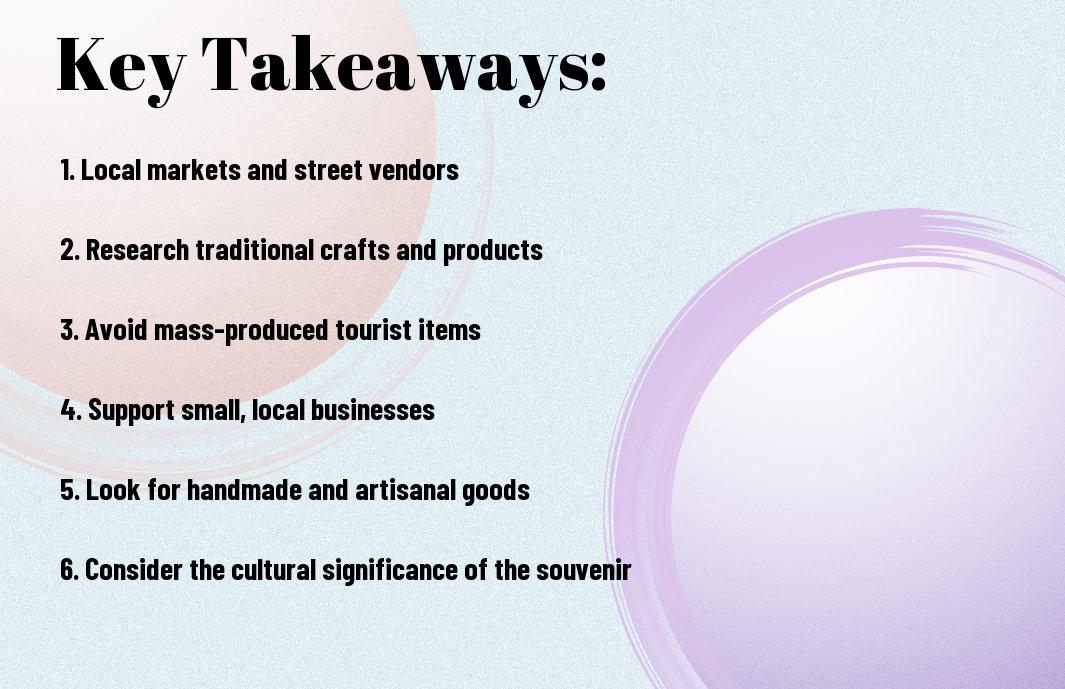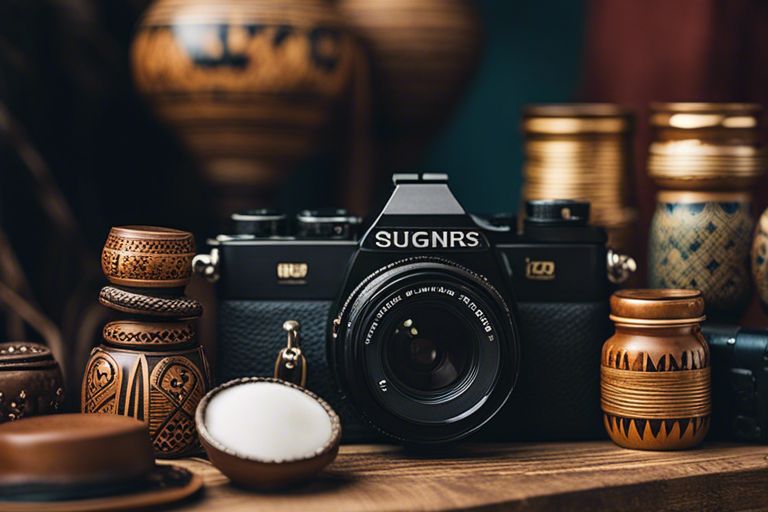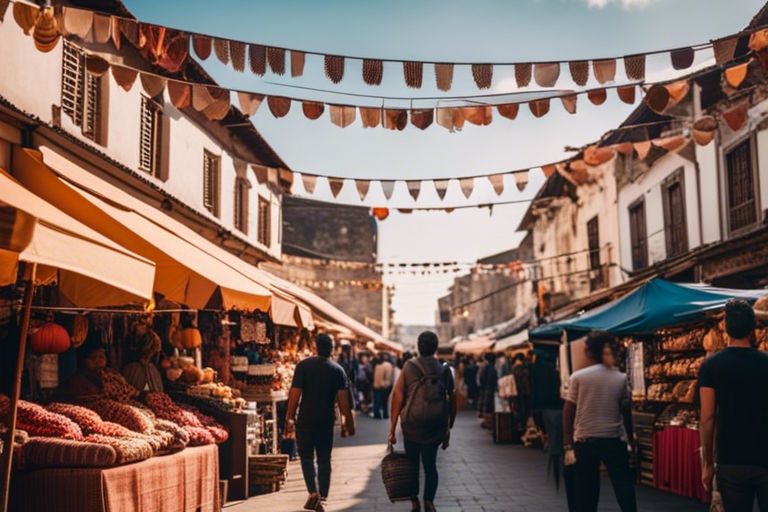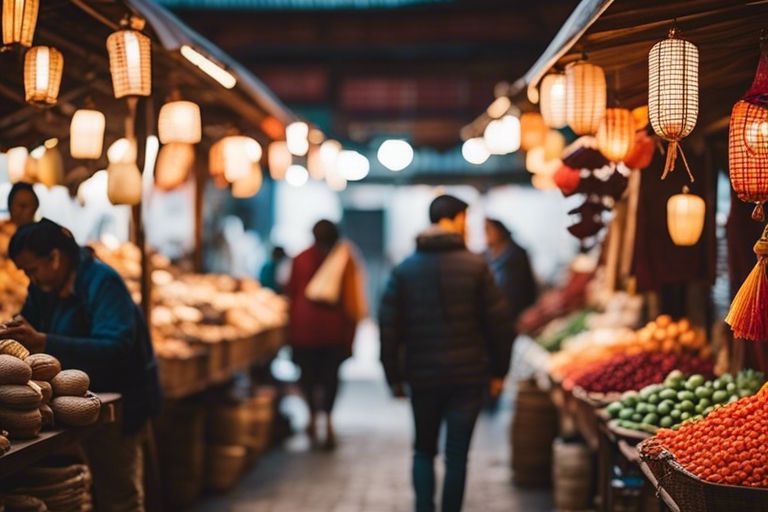Table of Contents
Embrace the opportunity to immerse yourself in a new culture by seeking out unique and authentic souvenirs during your travels. In a world where mass-produced trinkets and tourist traps abound, it can be a challenge to find items that truly capture the essence of a place. By digging deeper and exploring off-the-beaten-path locations, you can uncover one-of-a-kind treasures that will serve as meaningful reminders of your journey. In this blog post, you will discover tips and strategies for finding souvenirs that are genuine and memorable, as well as avoiding common pitfalls that can lead to ending up with a collection of mass-produced knick-knacks.
Key Takeaways:
- Research local crafts: Before traveling, do some research on the unique crafts and artisanal products that are specific to the region you’ll be visiting.
- Visit local markets and shops: Instead of buying souvenirs from touristy areas, visit local markets and shops to find authentic and one-of-a-kind products made by local artisans.
- Engage with local artisans: Take the time to engage with local artisans and learn about their craft. Purchasing directly from them ensures that you are getting an authentic and unique souvenir.
- Look for traditional materials and techniques: Seek out souvenirs made with traditional materials and techniques that are unique to the region, such as handwoven textiles or handmade pottery.
- Avoid mass-produced items: Try to avoid mass-produced souvenirs that are often found in tourist traps, and instead opt for products that are handmade and embody the cultural heritage of the destination.

Understanding Authenticity and Value
Any seasoned traveler knows that finding unique and authentic souvenirs while traveling is no easy feat. With the rise of mass-produced, generic trinkets flooding tourist markets around the world, it can be challenging to differentiate between what’s truly authentic and what’s simply a tourist trap. That’s why it’s important to understand the value and authenticity of the souvenirs you choose to purchase while traveling. 31+ Cool Travel Souvenir Collection Ideas
Defining Authenticity in Local Crafts
When it comes to finding authentic souvenirs, it’s essential to do your research and understand the local crafts and traditions of the destination you’re visiting. Pay attention to the craftsmanship, materials used, and the cultural significance of the item. Authentic local crafts often tell a story or reflect the unique traditions and heritage of the region. Look for handmade items that showcase the local artistry and skills of the community. This way, you’re supporting the local artisans and bringing home a truly authentic piece of the destination.
Assessing the Cultural and Historical Value of Souvenirs
As you search for souvenirs, it’s crucial to consider the cultural and historical value of the items you’re interested in. Ask yourself how the souvenir connects to the local culture and history. Does it carry a special significance or represent a traditional practice? Be wary of mass-produced items that may lack cultural or historical context. You want to bring home souvenirs that have a genuine connection to the destination and its heritage. By understanding the cultural and historical value of the souvenirs you purchase, you’re ensuring that your collection reflects the authentic spirit of your travels.

Where to Find Genuine Souvenirs
Now that you understand the importance of finding unique and authentic souvenirs, it’s time to talk about where you can actually find them. There are several places you can explore in order to discover genuine souvenirs that truly represent the culture and traditions of the destination you are visiting.
Local Markets and Artisan Shops
When you visit a new destination, make sure to spend some time exploring the local markets and artisan shops. These places are often filled with handmade crafts, traditional clothing, and locally produced goods that are not only unique but also represent the local culture in the truest sense. By purchasing souvenirs from these places, you are not only supporting local artisans and businesses, but you are also getting the chance to interact with the local community and experience their way of life.
Cultural Institutions and Specialty Stores
Cultural institutions such as museums, art galleries, and historical sites often have gift shops that offer souvenirs related to the local culture and history. These souvenirs are usually carefully curated and are a great way to take home a piece of the destination’s heritage. Additionally, specialty stores that focus on specific local products such as wine, cheese, or handicrafts are also great places to find unique souvenirs. You can be sure that the items you purchase from these places are authentic and high-quality, representing the best of what the destination has to offer.

Tips for Selecting Souvenirs
However, when it comes to selecting souvenirs during your travels, it’s important to approach the process thoughtfully and with consideration for authenticity and uniqueness. Here are some tips to help you select the perfect souvenirs that truly represent your travel experience:
- Do your research: Before you embark on your trip, research the local craftsmanship and traditional souvenirs specific to the region you are visiting. This will give you a better understanding of the authenticity and uniqueness of the souvenirs you come across.
- Look for locally made products: Supporting local artisans and businesses ensures that your souvenirs are unique and authentic to the region. Avoid mass-produced items typically found in touristy areas.
- Consider the practicality: Instead of opting for generic trinkets, look for items that you can actually use or display in your home. This will not only give your souvenirs a greater sense of value but also serve as a meaningful reminder of your travels.
- Ask questions: Engage in conversation with the locals and artisans to gain insights into the craftsmanship and history behind the souvenirs you are interested in. This will enhance your appreciation for the items and help you make an informed decision.
After considering these tips, you can make a well-informed decision and select souvenirs that truly capture the essence of your travel experience.
Practical Advice on Quality and Craftsmanship
When selecting souvenirs based on quality and craftsmanship, pay attention to the materials used and the attention to detail in the artisan work. Look for items that showcase the artistic skills and cultural influences of the region, as they are more likely to be authentic and unique.
Negotiation Strategies and Cultural Etiquette
When it comes to negotiation and cultural etiquette, it’s important to be respectful and considerate of the local customs. While negotiating prices might be a common practice in some cultures, it’s essential to approach it with courtesy and a genuine interest in the artisan’s work. Be mindful of the local norms and be open to learning about the cultural significance of the items you are interested in.
Preserving and Promoting Local Traditions
After all, one of the most rewarding aspects of travel is the opportunity to explore and learn about different cultures. One way to truly experience a culture and bring a piece of it home with you is by seeking out unique and authentic souvenirs that reflect local traditions. By supporting local artisans and craftspeople, you not only acquire a meaningful memento of your travels, but you also contribute to the preservation and promotion of traditional craftsmanship.
The Role of Tourism in Supporting Local Artisans
When you purchase souvenirs directly from local artisans, you are not only acquiring a unique and authentic item, but you are also supporting the livelihood of these individuals and their families. Tourism plays a vital role in sustaining the traditional crafts and skills that are passed down through generations. By purchasing locally-made souvenirs, you are helping to ensure that these age-old traditions continue to thrive in the face of modernization and globalization. Your support directly contributes to the preservation of cultural heritage and the promotion of these unique crafts.
Ethical Considerations in Souvenir Purchasing
When shopping for souvenirs, it is important to consider the ethical implications of your purchases. Be mindful of the origins of the items you are buying and ensure that they are produced in a sustainable and ethical manner. Avoid purchasing mass-produced trinkets that may not have been made by local artisans, and instead, seek out items that are handmade using traditional methods. By making ethical choices in your souvenir purchases, you can contribute to the sustainable development of local communities and support fair trade practices.
FAQ
Q: How can I find unique and authentic souvenirs while traveling?
A: The key to finding unique and authentic souvenirs while traveling is to explore local markets, artisan shops, and independent boutiques. Avoid tourist traps and chain stores, and seek out smaller, locally owned businesses where you can find one-of-a-kind items that reflect the culture and heritage of the destination.
Q: What are some tips for finding authentic souvenirs?
A: Look for handmade items that are crafted using traditional methods and materials. Pay attention to the quality and detail of the souvenirs, and ask the seller about the origins and significance of the items. Avoid mass-produced trinkets and instead opt for items that have a story and a personal connection to the destination.
Q: How can I ensure the souvenirs I purchase are authentic?
A: Research the traditional crafts and products of the destination before you travel, so you have an understanding of what to look for. When shopping, look for local markings or labels that indicate the authenticity of the item. Be mindful of counterfeit products, and be willing to invest in higher quality, authentic souvenirs that will hold sentimental and historical value.

